2 Jun 2015 | Africa, Angola, mobile, News and features, Statements
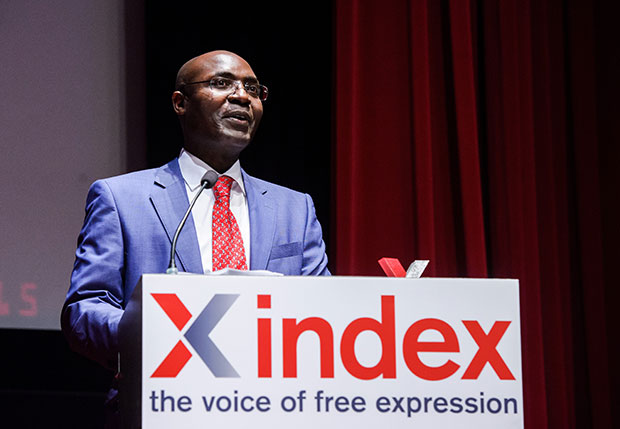
Journalist and human rights activist Rafael Marques de Morais (Photo: Alex Brenner for Index on Censorship)
International signatories from the worlds of technology, journalism, publishing, theatre, film and business, including jewellers Tiffany & Co, called on Angolan president José Eduardo dos Santos on Tuesday to drop the prosecution of award-winning investigative journalist Rafael Marques de Morais.
Marques was last week given a six-month suspended sentence following a trial in which he faced criminal defamation charges over his 2011 book on blood diamonds, which was published for the first time in English on Tuesday.
“Rafael’s trial was a sham. He was told charges would be dropped, only for him to be hit with new charges out of the blue, and he was not allowed to present his evidence or call witnesses,” said Jodie Ginsberg, CEO of freedom of expression group Index on Censorship, which organised the letter.
“Rafael is a courageous journalist, working with little support to expose corruption in Angola. This absurd trial and verdict is meant to stop him from speaking out. We want to make sure that does not happen.”
Marques was awarded an Index on Censorship Freedom of Expression award in March for his work. Signatories to the letter include jewellers Tiffany & Co.; tech entrepreneurs Martha Lane Fox, one of the judges of the awards, and Wikipedia founder Jimmy Wales; authors Philip Pullman, Neil Gaiman and Elif Shafak; actors Janet Suzman, Juliet Stevenson, and Simon Callow; playwrights Howard Brenton and Timberlake Wertenbaker; as well as Steve McQueen, director of Oscar-winning film 12 Years a Slave. Other signatories included journalists Sir Harold Evans and Christina Lamb; and artists and writers with direct experience of censorship, such as Syrian political cartoonist Ali Ferzat and Azerbaijani journalist Idrak Abbasov.
The letter will be delivered by Index on Censorship to the Embassy of Angola in London on Tuesday, June 2.
For more information, contact David Heinemann on 0207 260 2664 or email [email protected].
The letter
We, the undersigned, call on Angolan President José Eduardo dos Santos to drop the prosecution of journalist Rafael Marques de Morais.
Marques’ vital investigations into human rights abuses should not be impeded by the threat of jail, which is set to loom over him for two years under the court’s terms.
His conviction and six-month suspended sentence are a clear violation of the rights to free expression, to a free press and to a fair trial.
Marques’ reporting is fundamental not only to Angola, but to the world at large.
We call on you to ensure standards of international law are applied during the appeal process.
Yours faithfully,
Ali Ferzat, cartoonist
Angela Quintal, editor, Mail & Guardian, South Africa
Dame Ann Leslie, journalist
Anthony Barling, lawyer
Art Kaufman, World Movement for Democracy
Bob Fu, founder and president, ChinaAid
Brilliant Earth Jewellery
Carl Gershman, president, National Endowment for Democracy
Chantal Uwimana, Transparency International
Chie Murakami, director general, Diamonds for Peace, Japan
Christopher Hird, film producer
Christophe Deloire, secretary-general, Reporters Without Borders
Christina Lamb OBE, journalist
David Aaronovitch, columnist
David Harewood MBE, actor
David McCune, publisher
David Schlesinger, founder, Tripod Advisors
Dreda Say Mitchell, author
Edward Fitzgerald CBE QC, lawyer
Elaine Potter, journalist
Elif Shafak, author
Geoffrey Hosking OBE, historian
Grigory Pasko, journalist
Sir Harold Evans, journalist
Howard Brenton, playwright
Idrak Abbasov, journalist
Janet Suzman, actor and director
Jesper Højberg, executive director, International Media Support
Jeffrey Smith, Robert F Kennedy Centre for Justice & Human Rights
Jimmy Wales, founder, Wikipedia
Jodie Ginsberg, chief executive, Index on Censorship
John Witherow, editor, The Times, UK
Juliet Stevenson, actor
Kamila Shamsie, author
Kostas Vaxevanis, journalist
Lara Pawson, author of In the Name of the People: Angola’s Forgotten Massacre
Larry Kilman, secretary-general, World Association of Newspapers and News Publishers
Leber Jeweler Inc
Lee Hirsch, film director
Lindsey Hilsum, journalist
Louise Redvers, journalist
Mariane Pearl, journalist
Mark Stephens CBE, senior member, Howard Kennedy LLP
Martha Lane Fox CBE, House of Lords
Mary Lawlor, executive director, Front Line Defenders
Maya Wolfe-Robinson, journalist
Matthew d’Ancona, journalist
Matthew Parris, journalist
Mohamed Al-Dharadji, film director
Neil Gaiman, author
Paul Webster, film producer
Peter Oborne, journalist
Peter Kellner, president, YouGov
Peter Pomerantsev, author
Peter Tatchell, director, Peter Tatchell Foundation
Philip Pullman, author
Rahim Haciyev, editor, Azadliq, Azerbaijan
Richard Sambrook, director, Centre for Journalism, Cardiff University
Ronald Deibert, academic
Robert McCrum, writer and editor
Sanar Yurdatapan, Initiative for Freedom of Expression, Turkey
Shubhranshu Choudhary, journalist
Simon Callow CBE, actor
Steve McQueen CBE, film director
Sue Woodford-Hollick OBE, businesswoman
Sue Valentine, Committee to Protect Journalists Africa Programme
Suzanne Nossel, executive director, PEN American Centre
Stephen Hull, editor-in-chief, Huffington Post UK
Thomas Hughes, executive director, Article 19
Tiffany & Co.
Timberlake Wertenbaker, playwright
Turi Munthe, founder, Demotix
Yoav Shamir, filmmaker
Ziyad Marar, publisher
29 Jan 2015 | Azerbaijan, Azerbaijan News, mobile, News and features
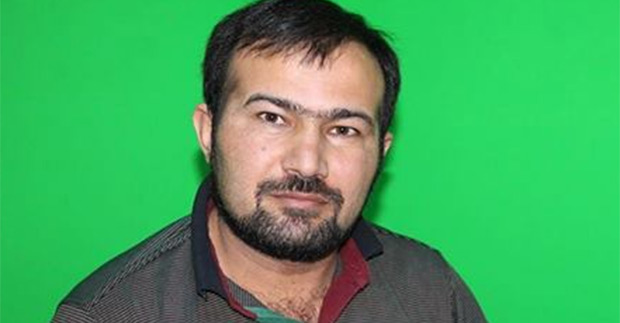
Azerbaijani journalist Seymur Hezi, who works for Index on Censorship Freedom of Expression Award-winning newspaper Azadliq, has been sentenced to five years imprisonment for “aggravated hooliganism”, according to Azadlıq Radiosu.
“Index condemns the sentencing of Azerbaijani journalist Seymur Hezi, who was arrested last year on trumped up charges of disorderly conduct. The ‘crime’ for which he is actually being punished is journalism and his attempts to tell the truth about a brutal authoritarian regime that systematically stifles dissent,” Index CEO Jodie Ginsberg said.
Hezi’s sentencing is another sign of the continuing clampdown by Azerbaijan’s authoritarian government on civil society. Earlier this week, investigative journalist Khadija Ismayilova‘s pre-trial detention period was extended by a Baku court; other prominent human rights defenders who have been arrested in recent months include: Leyla Yunus, Arif Yunus, Rasul Jafarov, Anar Mammadli and Intigam Aliyev.
Hezi was arrested on August 29 2014 after an altercation in which the journalist said he was protecting himself from a physical assault and harassment, according to his lawyers.
Azadlıq Radiosu reported that Hezi’s lawyers and family are certain the arrest and the sentence are politically motivated and that Hezi is innocent.
His father, Meshqul Heziyev told Azadlıq Radiosu, “the hearing was biased and turned down all of the motions. At the end it simply carried out a politically motivated order”.
“Seymur Hezi’s arrest is a serious blow against our newspaper. He is one of the brightest Azerbaijani analysts and journalists, and a true intellectual,” Rahim Haciyev, acting editor of Azadliq newspaper, told Index at the time of Hezi’s arrest.
Haciyev said he is sure Hezi’s arrest is the result of a planned provocation and the journalist is prosecuted for publishing critical articles on the authorities in the newspaper, as well as in his online TV program “Azerbaijani Hour”, which he scripts and hosts.
In March 2011, Hezi was abducted and tortured by unidentified men. He was warned to keep quiet.
Seymur Hezi is also host of news programme “Azerbaijan Hour” and is a member of the opposition Popular Front Party.
This article was published on 29 January 2015 at indexoncensorship.org
21 Nov 2014 | Azerbaijan News, News and features, Politics and Society
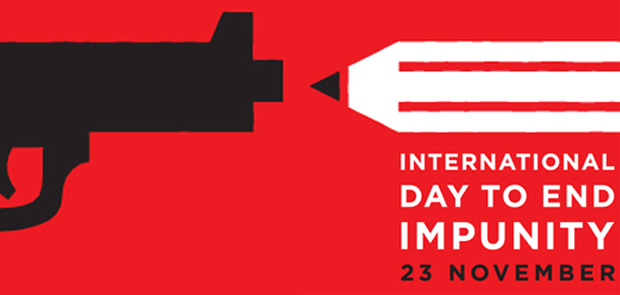
Impunity is a festering sore on freedom of the press. Harassment, violence and murder of journalists are problems around the world — even in Europe, as Index’s project mapping media violations has shown. The numbers speak for themselves: of the 370 media workers murdered in connection with their job over the past ten years, 90% have been murdered without their killers being punished. Many of these crimes aren’t even investigated.
Ahead of the International Day to End Impunity, journalists from across the world told Index why impunity is such a danger to free expression and a free press.
Kostas Vaxevanis, Greek investigative journalist, HOT DOC, and 2013 Index award winner
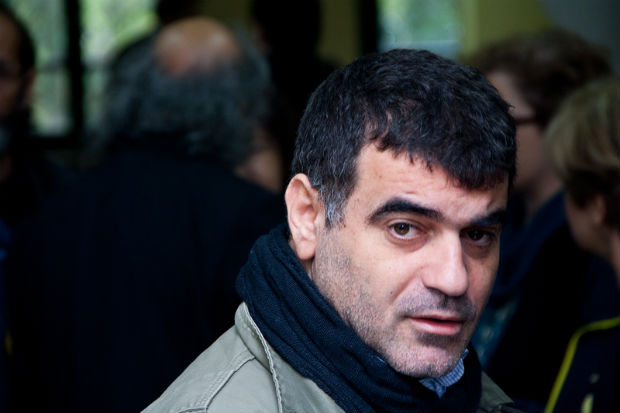
Impunity generates corruption and its enemy is the one thing that exposes and threatens it: the freedom of the press.
The HOT DOC is currently facing 40 lawsuits mainly from ministers and politicians in an attempt to shut us down as journalists. We reveal scandals like one with the minister of justice, a former judge who committed an “error” that granted amnesty to officials who had abused public funds, and instead of answering in public as required as politicians, we are being sued. We pester the courts and despite winning lawsuits, we need more than 80,000 euro per year for court expenses.
Heather Brooke, British-American journalist and 2010 Index award winner

It is a problem that journalists around the world get threatened, intimidated and killed just for doing their job.
These crimes, like any other crime, need to be investigated. If not, it sends a message that this is okay; that the law is only for certain people. It is an implicit acceptance of this behaviour.
If we want to have a strong press, threats, intimidation and murder of journalists can’t be seen to be implicitly condoned by the state. It’s a dangerous message. It makes people frightened to ask tough questions, and if that happens, you are on the way to shutting down a robust press.
Kareem Amer, Egyptian blogger and 2007 Index award winner
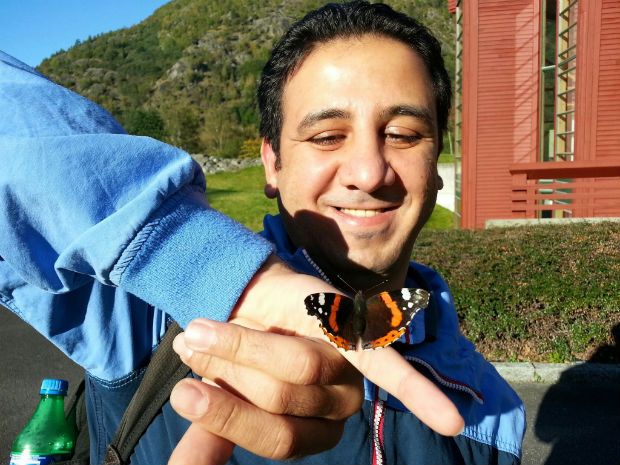
I come from a country where we have a lack of justice. The executive power controls the parliament and the justice system. People feel that if they get mistreated or oppressed by those in power nothing will protect them or bring them justice.
Not only people who express their opinions suffer from a lack of justice. People from different backgrounds who have a different way of thinking and different interests also don’t trust the justice system. Those who have more power can easily avoid punishment and take revenge against victims who tried to get their rights through judiciary system.
Officially, police officers don’t have any kind of formal immunity. According to the law they can be questioned if they violate the rights of people by torturing or murdering. But, in fact, all those accused of killing protesters and torturing prisoners managed to avoid being punished, with a few exceptions.
I feel that it’s not safe to express your opinions freely in a country where people can easily avoid punishment.
I have been sentenced to four years in jail for writing two articles and publishing them on the internet, and during that time I have been through physical violence and mistreatment committed by security forces. I reported it but no one has been questioned or punished. That made me feel that there is no justice in my country and that it is easy to be humiliated and tortured and you will not get protected, since the judiciary system is practically part of the executive power and the judges do what the authorities want them to do.
Rahim Haciyev, Azerbajiani journalist and acting editor of 2014 Index award winner Azadliq

Rahim Haciyev, deputy editor-in-chief of Azerbaijani newspaper Azadliq (Photo: Alex Brenner for Index on Censorship)
Freedom of expression is the basis of all other rights and freedoms. Free speech is something all authoritarian regimes are worried about as it threatens their existence. That is why freedom of expression is specifically targeted by authoritarian regimes. If there are no free people, there is no freedom of expression. Free speech is a precondition for journalists to be able to work in full strength and thus fulfill their functions in society. Authoritarian regimes organise permanent attacks on journalists with impunity. A free journalist armed with freedom of expression is a threat to an authoritarian regime, this is why perpetrators receive awards, not punishment for oppressing journalists’ rights. This process leads to self-censorship, and journalists stop being carriers of truthful information, which in the end affects society.
Nazeeha Saeed, award-winning Bahraini journalist, who was tortured in police custody
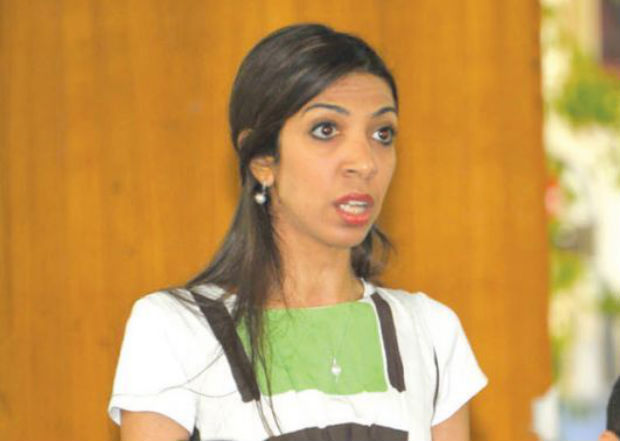
Impunity is a threat to free expression because journalists and people who report the facts on the ground will feel danger, and if no one gets punished for crimes against journalists or others it establishes a systematic impunity culture. Feeling insecure is something bad, it stops people from having a normal life, functioning and expressing themselves.
Endalk Chala, Ethiopian blogger and co-founder of the Zone9 blogging collective (of which six members are currently imprisoned for their writing)
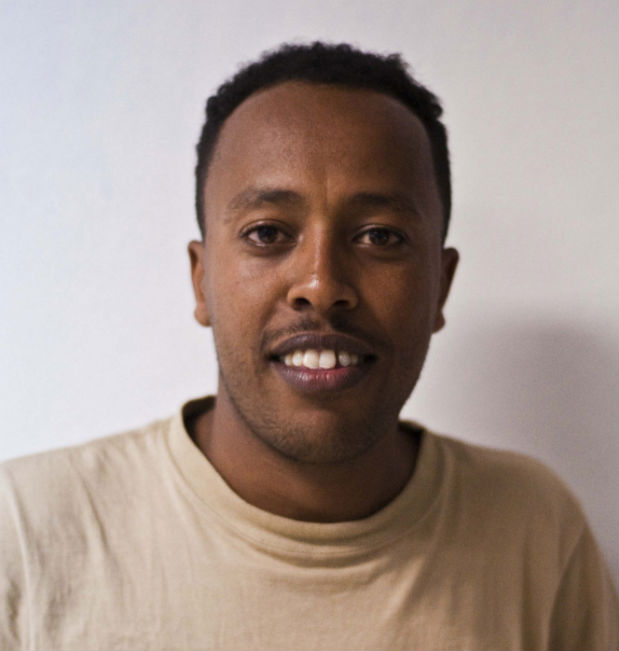
Impunity is a threat for free expression on many levels. In my experience I have seen impunity when it cultivates self-censorship. Let’s take the case of Zone9 bloggers. Since their arrest there are a lot of people who tried to visit them in prison, take a picture of them, attend their trial and tweet about their hearings but all of these have invited very bad reactions from the Ethiopian police.
Some were arrested briefly, others were beaten and it has become impossible to attend the “trial” of the bloggers and journalists. No action was taken by the Ethiopian courts against the bad actions of the police even though the bloggers have contentiously reported the kinds of harassment. As a result, people have stopped tweeting, taking pictures and writing about the bloggers. Apparently, the volume of the tweets and Facebook status updates which comes from Ethiopia has dwindled significantly. People don’t want to risk harassment because of a single tweet or a picture. This self-censorship could be attributed to impunity, which is pervasive in Ethiopia.
Impunity also causes a lack of trust in the Ethiopian judicial system. I don’t trust the independence of the Ethiopian justice system. I have never seen a police man/woman or a government authority being prosecuted for their bad actions against journalists. The Ethiopian government has been prosecuting hundreds of journalists for criminal defamation, terrorism and inciting violence but not a single government person for violating journalists’ rights. This tells you a lot about the compromised justice system of the country.
Andrei Soldatov, Russian investigative journalist and co-founder and editor of Agentura.Ru

Russia is known for its traditions of self-censorship. Despite what the laws say, the rules are explained in a quiet voice in some unmarked cabinets. Sometimes the rules are even not explained, and journalists, editors and owners of media have to constantly guess what is allowed at that moment. Not everyone is allowed to ask directly, so we are all in the game about signals sent by the authorities.
Journalists are beaten and killed in Russia, and this provides plenty of room to send such signals to the journalistic community. You don’t need to explain that investigative reporting in the North Caucasus is not allowed anymore: you just need to turn the investigation of Anna Politkovskaya’s assassination in 2006 into a show trial, where the assassins are duly found guilty, but the question of masterminds is never answered. You could be sure, the signal would be taken correctly.
Fergal Keane, Irish journalist, BBC foreign correspondent and 2003 Index award winner
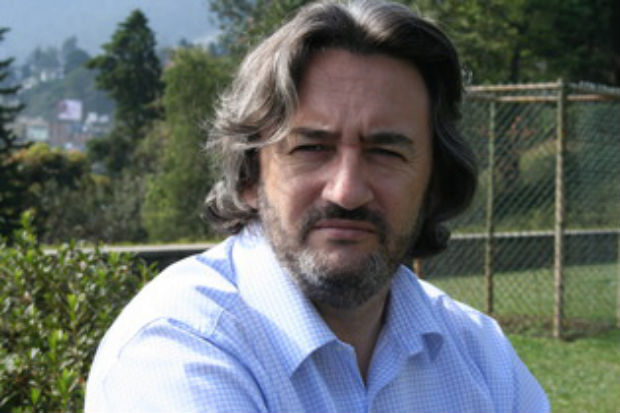
Impunity allows the enemies of free speech to threaten, torture and kill journalists secure in the knowledge they will never be called to account. I can’t think of a greater threat.
Veran Matic, B92 board of directors chairman and B92 news editor-in-chief
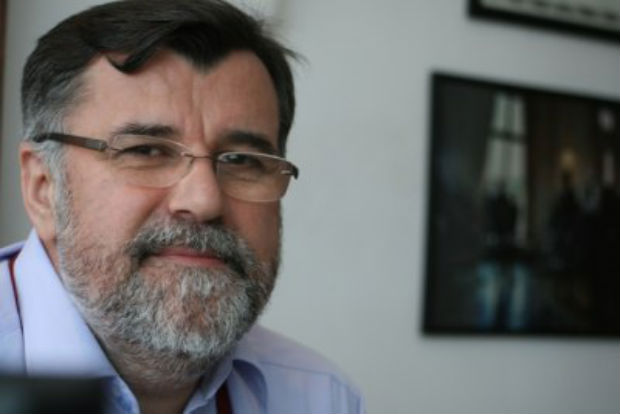
In my 25 years of experience in Serbia, I have been editor-in-chief of a media outlet that was banned on several occasions and I have been arrested.
Impunity directly encourages and expands violence towards journalists. The culture of producing fear is the most efficient form of censorship. One unsolved murder creates space for implementing the next one without any threat for the executioners. In the meantime, the media gets killed/eliminated in the process.
The lack of discontinuity with Slobodan Milosevic’s authoritarian regime had left room for impunity to remain intact.
Less than two years ago, I decided to make a kind of a breakthrough when it comes to impunity. I proposed the establishment of a mixed commission composed of journalists, members of the police and members of the security information agency. We managed to bring the 1999 murder of Slavko Curuvija to a phase where official indictment was brought, along with arrest of all suspects in this murder case. The 2001 murder of our colleague Milan Pantic is also in the final stage of investigation. A 1994 assassination — of Dada Vujasinovic — is being reviewed by the National Forensic Institute from The Hague because local institutions have compromised themselves in this case.
In the same way as impunity restricts freedom of speech, solving of these cases, at least 20 years later, will surely contribute to journalists being encouraged to do their job in the best possible way. Of course, I am not counting here on the new problems with which journalists and media face, and that call for finding new models of financing high quality journalism for the sake of public interest, worldwide.
The team behind Pao-Pao, a Chinese website focusing on internet freedom issues
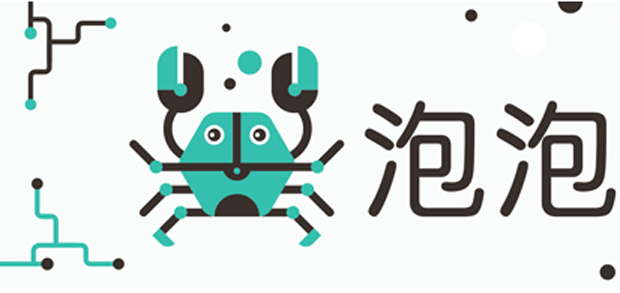
This year, we have seen a rising number of Chinese journalists, academics and human rights lawyers detained, threatened and arrested simply for speaking out online. While Chinese regulations on freedom of speech need to be closely examined, tech companies also play an important role in the deterioration of freedom of speech in China.
While Chinese tech companies are under the tight control of the Chinese authorities, there exists a culture of impunity in the western tech companies, especially when they are doing business in China. When we worked with our partner GreatFire to launch a FreeWeibo iOS application last year (an app to deliver uncensored content from Weibo, the largest social media platform in China), Apple decided to remove the app from their Chinese iTunes store. The only reason given was that Apple received a request from the Chinese authorities. This June, LinkedIn censored user posts deemed sensitive by the Chinese government on the global level, far beyond Beijing’s censorship requirement, even though LinkedIn does not have servers in China.
It would be the start of the end if these global tech companies start removing content simply because they do not want to upset their business relationships with China. It is crucial to hold these companies accountable for their behaviour. Otherwise it will further erode freedom of expression, not only for China, but also for the whole world.
The International Day to End Impunity was set up in 2011 by free speech network IFEX, of which Index on Censorship is a member, with the aim of demanding accountability and justice on behalf of those “targeted for exercising their right to freedom of expression”.
This article was originally posted on 21 November 2014 at indexoncensorship.org. It was updated at 14:09, 24 November to include the response from Pao-Pao.
5 Sep 2014 | Azerbaijan, Azerbaijan News, News and features
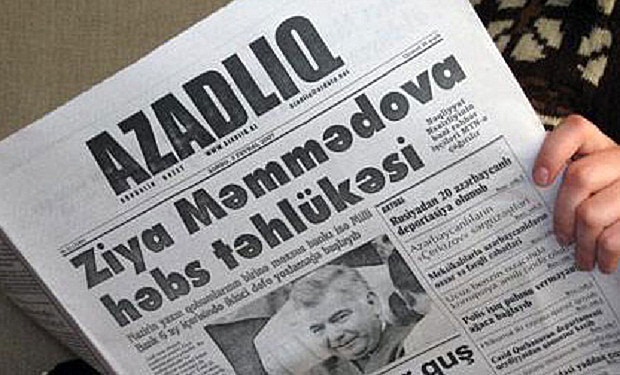
Seymur Hezi, a reporter working for Azadliq, Azerbaijan’s last independent newspaper, was sentenced to a two month pretrial detention on Monday, charged with disorderly conduct. This morning, journalist Khadija Ismayilova was detained at the Baku airport, according to the Institute for Reporters’ Freedom and Safety (IRFS).
Hezi’s arrest is another sign of the continuing clampdown by Azerbaijan’s authoritarian government on civil society. The journalist was charged with an alleged attack on a person in the street, although his lawyers claim he was trying to protect himself after he had been harassed and attacked.
It is not the first time charges of hooliganism and disorderly conduct have been applied against opposition politicians, civil society activists and journalists in Azerbaijan. In previous years, the same charges were used to imprison critical journalists Sardar Alibeili and Ganimat Zahid as well as bloggers Emin Milli and Adnan Hajizadeh.
“Seymur Hezi’s arrest is a serious blow against our newspaper. He is one of the brightest Azerbaijani analysts and journalists, and a true intellectual,” Rahim Haciyev, acting editor of Azadliq newspaper, told Index.
Haciyev said he is sure Hezi’s arrest is the result of a planned provocation and the journalist is prosecuted for publishing critical articles on the authorities in the newspaper, as well as in his online TV program “Azerbaijani Hour”, which he scripts and hosts.
The journalist’s arrest came only a month after the newspaper he works for, Azadliq, was forced into suspension of publication due to financial pressure from the authorities. Now it exists only in its online version.
The authorities of Azerbaijan continue their clampdown on the civil society of the country. Well-know human rights defenders Rasul Jafarov, Intigam Aliyev, Leyla Yunus and her husband Arif Yunus are still behind bars after they were all sentenced to 3 months of pretrial detention. The office of the Institute for Reporters’ Freedom and Safety (IRFS) was searched and sealed.
This wave of repression is connected to new legislation in place in Azerbaijan that restricts the freedom of association. In fact the new law makes it illegal for unregistered civil society organisations to receive funds for their activities.
This article was posted on 5 Sept 2014 at indexoncensorship.org














